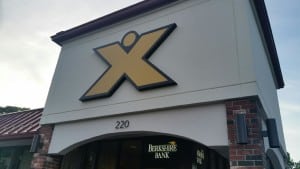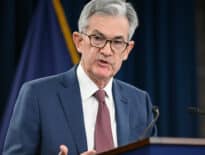With most bank stocks trading much lower than pre-pandemic levels, Berkshire Bank announced in its second-quarter earnings statement that it had written off all goodwill on its books resulting from previous acquisitions.
The $554 million goodwill impairment charge created a $549 million loss for the bank in the second quarter, or $10.93 per share, despite net pre-tax core revenue of $24 million once the goodwill impairment was excluded and total core revenue of $94.15 million. The latter earnings figure represents a $7 million drop year-over-year due to a 10 percent drop in net interest income thanks to dropping interest rates. The bank reported a net interest margin of 2.62 percent, down from 3.04 percent in the prior quarter.
On a conference call with analysists, CEO Richard Marotta emphasized that the write-off is unrelated to the bank’s performance.
“As you know, we’ve been focused on our core return on tangible common equity and is therefore unaffected,” he said.
Marotta said the accumulation of so much goodwill on the bank’s books was due to the bank’s acquisition-focused strategy under previous CEO Michael Daly that led to six mergers in the last 10 years and helped grow the bank’s footprint throughout the Northeast. Now, with most bank stocks, including Berkshire’s, trading at much lower rates due to the pandemic-induced recession, Marotta said the bank was forced to write off all goodwill from these mergers.
“It’s an accounting adjustment we have to do,” he said. “A lot of banks did this in the first quarter and I imagine there will be more in the second quarter […] This has nothing to do with us misreading [an acquisition].”
Aside from the write-off, Berkshire reported:
- A 7 percent quarter-over-quarter increase in deposits to $10.8 billion.
- Holding $706 million in outstanding Paycheck Protection Program loans at quarter-end, most of which were originated to existing borrowers.
- An improvement in its loan-to-deposit ratio, from 92 percent to 87 percent.
- An increase in its allowance for credit losses by $30 million, growing its allowances to 1.49 percent of loans, or 1.61 percent if PPP loans are excluded.
- Assets holding level at $13.1 billion.
Marotta and CFO Jamie Moses said the bank’s loan portfolio performance remained within historical norms and added the bank was seeing a significant reduction in the number of requests for loan modifications outside of the hospitality and leisure sectors. At the onset of the pandemic the bank had offered short-term modifications to borrowers in need, and Marotta said the bank expected between 60 percent and 70 percent of the loans that received temporary modifications to return to regular payments in the third quarter, with hospitality and leisure borrowers making up the bulk of the loans likely to need a second round of modifications.
The bank’s retail loan portfolio is currently concentrated in grocery and big-box-style retail properties, which have proved more resilient during the pandemic than mall retailers. Hotel and leisure loans represent 7.6 percent of all Berkshire’s loans.




 |
| 


